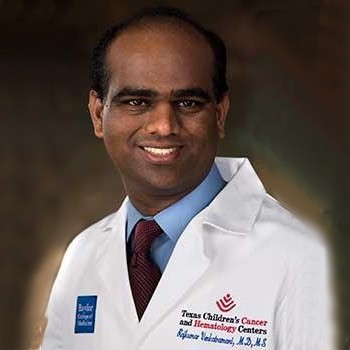

Thanks to the Will Irwin Memorial Fund, PCRF is proud to support the leading-edge rare tumor research of Dr. Rajkumar Venkatramani at Texas Children’s Hospital.
Molecular characterization of undifferentiated sarcomas
The care of children with rare cancers may be affected by delays in diagnosis, lack of information about the natural history of the disease and a lack of standardized treatment protocols. This is especially true for children with rare sarcomas (cancers of the bone, muscle and soft tissue). Many of these children are often diagnosed as having undifferentiated sarcomas, a descriptive term for a heterogeneous group of tumors with varied prognosis. The aim of the proposed study is to understand the molecular basis of rare sarcomas which can potentially lead to better treatments. We propose to study 50 children with the diagnosis of undifferentiated sarcoma. After obtaining permission from their parents, we will test patient’s tumor tissue and blood sample using advanced molecular (genetic) tests. Unused tumor tissue and blood will be stored for future rare tumor research. The results of these tests will be returned to the parents and treating physicians. In addition, we will collect clinical information, treatment details and outcome information to better define the natural history which will benefit other children in future.
About the rare tumors program
The Rare Tumors program at Texas Children’s Hospital is dedicated to the care of children with rare pediatric cancers. Our multidisciplinary team of pediatric oncologists, pathologists, surgeons, radiologists, geneticists and researchers work together to achieve the best outcome for every patient. Often, no standard diagnostic or treatment protocols exist for rare tumors. We have developed standardized treatment regimens for multiple childhood rare tumors and when applicable, we use advanced molecular diagnostic techniques to facilitate a timely and accurate diagnosis.
*If you would like further details or information on Dr. Venkatramani’s work or the Will Irwin Fund, please contact Jeri Wilson at jwilson@pcrf-kids.org
2151 Michelson Drive, Suite 180, Irvine, CA 92612
800.354.7273 | info@pcrf-kids.org